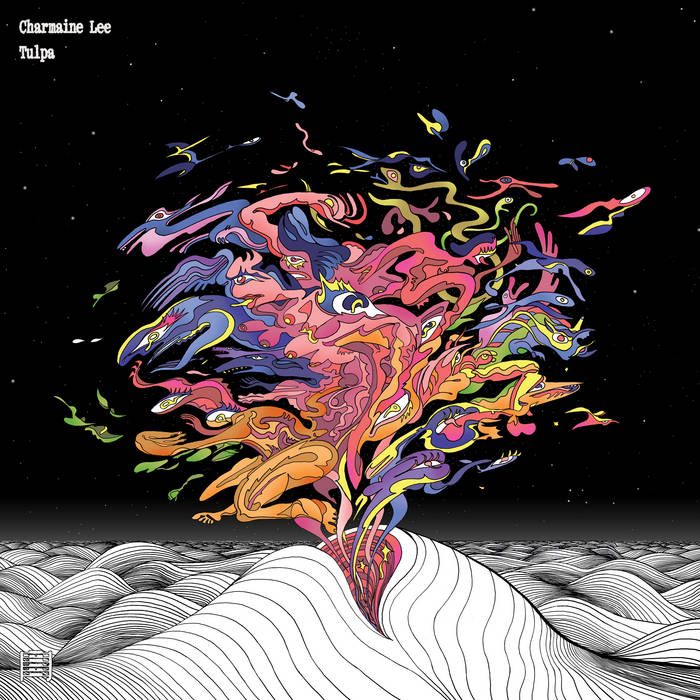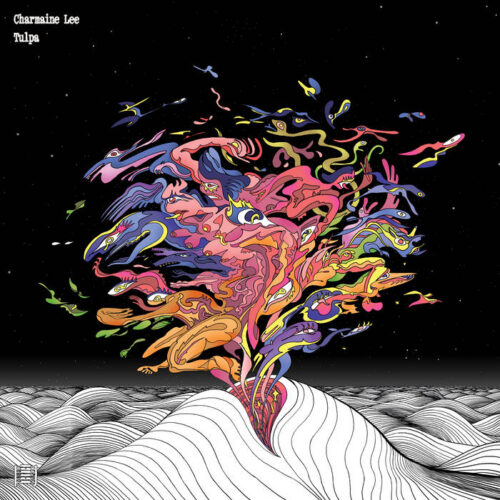In Tibetan mysticism, a ‘tulpa’ is a being created through the art of intense concentration. For composer, vocalist and sound artist Charmaine Lee, the concept extends to the human voice and all its mystery. Vocals can be material or transient; organic or an otherworldly entity. With Tulpa, she approaches the voice with attentiveness to its every angle, sculpting eight uncompromising tracks that highlight its malleability.
Tulpa centres and expands the vocal techniques Lee has shaped over the last several years through releases like 2021’s KNVF and live performances as a soloist and collaborator. She tapes a contact mic on her throat, taking close recordings of her voice as she hums, sputters and screams, creating a patchwork of often spiky and scratchy textures that expand into earth-shattering noise. It is an explorative and open approach, one that focuses on musical evolution.
This technique lies at the heart of Tulpa, but here, Lee travels into its darkest crevices. She accompanies hisses with pummeling rumbles, shuddering breaths with buzzing, helicopter-like drones. Her voice moves quickly, contorting itself at the drop of a hat. Her melodies sprint at the pace of chaos. But underneath it all is a meticulous approach to vocal technique that amplifies Lee’s interest in playing with the very idea of what it means to make vocal music.
While Lee’s techniques themselves are adventurous, some tracks on Tulpa can fall into the same patterns. The album is at its peak when she explodes her ideas into fragments and shoots them into unexpected directions. On ‘Little Rascals’, her voice becomes exaggerated and is pulled taut. She pants like she’s out of breath over a thrashing bass that feels submerged far into the ocean. ‘Live Long’ gallops, but instead of following the swarm that marks much of the album, it’s pared down into just a couple unsteady beats that, as they grow, find a flow-state groove. And on ‘Moebius’, she pulls back from potency and embraces a quieter palette, transforming each squeal into a gossamer thread.
With closer ‘Noh Age’, a duet with clarinetist Ned Rothenberg, Lee finds the most surprising direction. Here, she stretches out even further, incorporating empty space and finding ample room for contemplation. A blaring, overblown bass clarinet interlocks with Lee’s voice with ritualistic force. It’s Lee at her most expansive, a track that feels like an endless path into the deep and a reminder that the voice, while so familiar, is just as equally a means to venture into the unknown.



